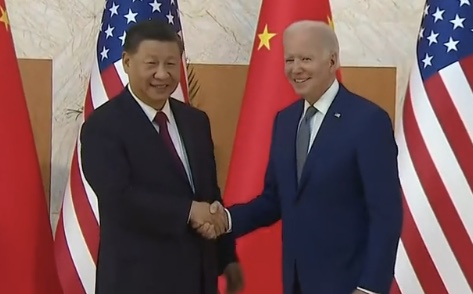US Chip Companies Fear More Anti-China Restrictions: Biden and SIA
Kanako Mita and Lee Jay Walker
Modern Tokyo Times

The semiconductor lobby in America is alarmed by restrictions being enacted by the administration of President Joe Biden concerning anti-China policies. Naturally, according to Biden, the issue is deemed to be national security.
However, the vagueness of “national security” and the policies of the “containment of China” concerning geopolitics is entailing a detrimental trade policy that is hindering the semiconductor sector in America.
Reuters reports, “U.S. chip company executives met with top Biden administration officials on Monday to discuss China policy, the State Department and sources said, as the most powerful semiconductor lobby group urged a halt to more curbs under consideration.”
It is known that Antony Blinken (Secretary of State) met leading chief executives since his visit to China. They discussed issues concerning the semiconductor sector and the importance of supply chains.
China is the largest semiconductor market and accounted for roughly 30 percent of all purchases in this sector last year.
The Semiconductor Industry Association (SIA) requested the American government to enable “the industry to have continued access to the China market, the world’s largest commercial market for commodity semiconductors.”
The SIA said: “Recognizing that strong economic and national security require a strong U.S. semiconductor industry, leaders in Washington took bold and historic action last year to enact the CHIPS and Science Act to strengthen our industry’s global competitiveness and de-risk supply chains. Allowing the industry to have continued access to the China market, the world’s largest commercial market for commodity semiconductors, is important to avoid undermining the positive impact of this effort. Repeated steps, however, to impose overly broad, ambiguous, and at times unilateral restrictions risk diminishing the U.S. semiconductor industry’s competitiveness, disrupting supply chains, causing significant market uncertainty, and prompting continued escalatory retaliation by China.”
The SIA continued, “We call on both governments to ease tensions and seek solutions through dialogue, not further escalation. And we urge the administration to refrain from further restrictions until it engages more extensively with industry and experts to assess the impact of current and potential restrictions to determine whether they are narrow and clearly defined, consistently applied, and fully coordinated with allies.”
A spokesperson for the White House National Security Council said: “Our actions have been carefully tailored to focus on technology with national security implications, and designed to ensure that U.S. and allied technologies are not used to undermine our national security.”
The Biden administration continues to pass huge military budgets – and is encouraging a new arms race in Europe and Northeast Asia. Accordingly, the nations of Japan, South Korea, and Taiwan are being encouraged to adopt anti-China and anti-Russian Federation policies to a higher degree in line with the Biden administration.
America needs to find a fine balance between national security, geopolitics, and enabling important sectors to thrive – without government interference that is detrimental to business. Therefore, the SIA seeks the government to adopt “a constructive dialogue approach” with China.

Modern Tokyo News is part of the Modern Tokyo Times group
http://moderntokyotimes.com Modern Tokyo Times – International News and Japan News
http://sawakoart.com – Sawako Utsumi’s website and Modern Tokyo Times artist
https://moderntokyonews.com Modern Tokyo News – Tokyo News and International News
PLEASE JOIN ON TWITTER
https://twitter.com/MTT_News Modern Tokyo Times
PLEASE JOIN ON FACEBOOK